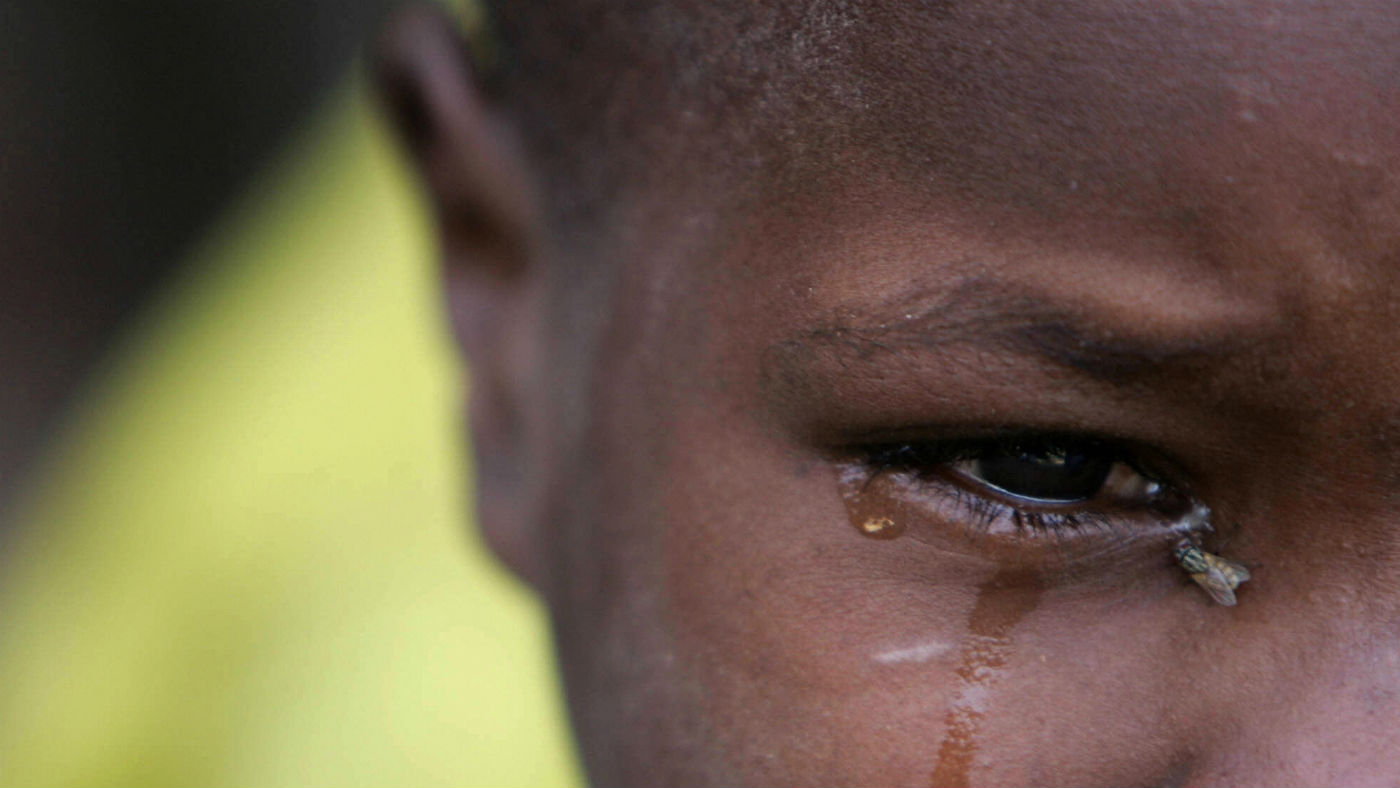Why the world is getting sadder and angrier
Annual study of global emotions paints an unhappy picture

A free daily email with the biggest news stories of the day – and the best features from TheWeek.com
You are now subscribed
Your newsletter sign-up was successful
People across the word are sadder, angrier and more fearful than they have been in more than a decade, a study of global well-being has concluded.
Since 2006, Gallup has compiled its Global State of Emotions survey, based on interviews with 150,000 adults a year in more than 140 countries. This year it documented a slump in the worldwide mood and record overall scores for negativity.
Africa accounted for most of the unhappiest countries. Bottom of the list was Chad, which has had no internet access for over a year, and where almost six million of its 15 million citizens live in extreme poverty.
The Week
Escape your echo chamber. Get the facts behind the news, plus analysis from multiple perspectives.

Sign up for The Week's Free Newsletters
From our morning news briefing to a weekly Good News Newsletter, get the best of The Week delivered directly to your inbox.
From our morning news briefing to a weekly Good News Newsletter, get the best of The Week delivered directly to your inbox.
Wealthier countries had their problems too. In the US, 55% of respondents told Gallup they had felt a lot of stress the day before being interviewed, well above the global average of 35%. The UK did not appear in either the top or bottom ten, and Gallup has not yet published the full national breakdown of scores.
Overall, a third of people interviewed said they were experiencing stress, a quarter felt sad and more than a fifth were angry.
“Gallup’s analysis doesn’t state what’s triggering these feelings” says Fast Company, “but it does point out some commonalities among the afflicted: emotional distress was particularly high for people under 50, and low-income people”.
Gallup’s research found that lower-income Americans tended to report more stress, as did those who disapprove of Donald Trump. Previous studies have found that money, health and politics are leading causes of stress for Americans, while social media and technology are also frequently blamed for stress and mental health problems.
A free daily email with the biggest news stories of the day – and the best features from TheWeek.com
“Many of the countries experiencing roughly as much stress as the US were embroiled in political turmoil of some kind, whether humanitarian, economic or security-related”, says Time magazine, citing Greece, the Philippines and Tanzania.
By contrast, more than seven in ten people around the world said they experienced enjoyment, felt well-rested, and smiled or laughed a lot on the day before the survey.
Scandinavian countries usually top lists of the world's happiest countries, with four - Finland, Denmark, Norway and Iceland - leading this year’s UN World Happiness Report.
“Gallup's interview-led approach, however, has repeatedly found higher levels of fulfillment in Latin America,” says CNN.
Latin Americans “may not always rate their lives the best”, says Gallup’s global managing partner Jon Clifton, “but they laugh, smile and experience enjoyment like no one else in the world”.
A family focus in top-ranked Paraguay bleeds into day-to-day culture, says Barbara Ganson, a Florida Atlantic University professor. According to USA Today, Paraguayans typically work from 7am to 11am, returning home for lunch and with family, before returning to work from 3pm to 7pm.
-
 Switzerland could vote to cap its population
Switzerland could vote to cap its populationUnder the Radar Swiss People’s Party proposes referendum on radical anti-immigration measure to limit residents to 10 million
-
 Political cartoons for February 15
Political cartoons for February 15Cartoons Sunday's political cartoons include political ventriloquism, Europe in the middle, and more
-
 The broken water companies failing England and Wales
The broken water companies failing England and WalesExplainer With rising bills, deteriorating river health and a lack of investment, regulators face an uphill battle to stabilise the industry
-
 Epstein files topple law CEO, roil UK government
Epstein files topple law CEO, roil UK governmentSpeed Read Peter Mandelson, Britain’s former ambassador to the US, is caught up in the scandal
-
 Iran and US prepare to meet after skirmishes
Iran and US prepare to meet after skirmishesSpeed Read The incident comes amid heightened tensions in the Middle East
-
 Israel retrieves final hostage’s body from Gaza
Israel retrieves final hostage’s body from GazaSpeed Read The 24-year-old police officer was killed during the initial Hamas attack
-
 China’s Xi targets top general in growing purge
China’s Xi targets top general in growing purgeSpeed Read Zhang Youxia is being investigated over ‘grave violations’ of the law
-
 Panama and Canada are negotiating over a crucial copper mine
Panama and Canada are negotiating over a crucial copper mineIn the Spotlight Panama is set to make a final decision on the mine this summer
-
 Why Greenland’s natural resources are nearly impossible to mine
Why Greenland’s natural resources are nearly impossible to mineThe Explainer The country’s natural landscape makes the task extremely difficult
-
 Iran cuts internet as protests escalate
Iran cuts internet as protests escalateSpeed Reada Government buildings across the country have been set on fire
-
 US nabs ‘shadow’ tanker claimed by Russia
US nabs ‘shadow’ tanker claimed by RussiaSpeed Read The ship was one of two vessels seized by the US military